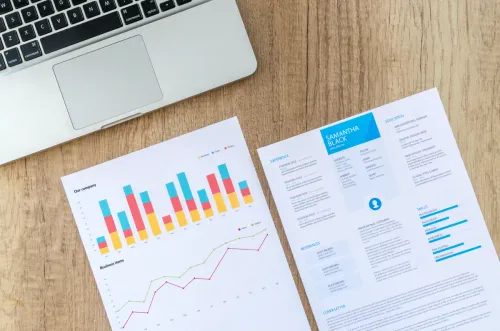In the vast landscape of the internet, where millions of blog posts are published every day, how can you ensure that your carefully crafted content reaches its intended audience? This is where Search Engine Optimization (SEO) comes into play. For bloggers, understanding and implementing SEO techniques is no longer just a choice—it's a necessity. In this comprehensive guide, we will delve into the world of SEO for bloggers, exploring why it's crucial, how to get started, the impact it can have on your blog, and why SEO is an ongoing commitment.
Understanding SEO
Search Engine Optimization (SEO) is the process of optimizing your website or blog content to improve its visibility in search engine results pages (SERPs). When a user searches for a particular topic or question on a search engine like Google, the goal of SEO is to make your content appear among the top results, thus driving organic (non-paid) traffic to your site.
Why is SEO Important for Bloggers?
Imagine spending hours crafting an insightful and informative blog post, only to have it buried on page five of search results, where barely anyone ventures. That's where the importance of SEO shines. Here's why every blogger should prioritize SEO:
- Increased Visibility
The internet is a vast expanse, and without SEO, your content might drown in obscurity. SEO techniques help your content rise to the surface, making it more likely to be discovered by users actively searching for relevant topics.
- Targeted Traffic
SEO enables you to attract users who are already interested in your blog's niche. These users are more likely to engage with your content, share it, and become loyal readers.
- Credibility and Authority
When your content consistently appears at the top of search results, it signals to users and search engines that your blog is a reliable source of information. This boosts your credibility and establishes you as an authority in your field.
- Long-Term Results
While social media and paid advertising can provide short-term traffic boosts, SEO offers sustainable, long-term results. A well-optimized piece of content can continue to drive traffic for months or even years after it's published.
- Cost-Effectiveness
Compared to paid advertising, SEO is cost-effective. While it might require an investment of time and possibly some resources, the long-lasting benefits can far outweigh the costs.
Beginner Steps for SEO
Getting started with SEO might seem daunting, but breaking it down into manageable steps can make the process more approachable. Here's a step-by-step guide for bloggers looking to optimize their content:
- Keyword Research
Keywords are the foundation of SEO. These are the words or phrases users type into search engines when looking for information. Conduct keyword research to identify relevant keywords for your blog post. Use tools like Google Keyword Planner, Ahrefs, or SEMrush to find keywords with decent search volume and low competition.
- On-Page Optimisation
Once you've identified your target keywords, it's time to optimize your content:
- Title Tag: Include your main keyword in the title tag, preferably near the beginning. Keep it concise and compelling.
- Meta Description: Write a concise and engaging meta description that incorporates your keyword. This description appears below the title in search results and can influence click-through rates.
- Header Tags: Use header tags (H1, H2, H3, etc.) to structure your content. Include your main keyword in at least one of the headers.
- Keyword Placement: Naturally incorporate your keyword throughout the content, but avoid keyword stuffing, which can harm your rankings.
- Quality Content
No amount of optimization can compensate for poor content. Create valuable, informative, and engaging content that genuinely addresses your readers' needs.
- Internal and External Links
Include both internal links (links to other pages within your blog) and external links (links to authoritative sources) in your content. This not only helps users navigate your blog but also signals to search engines that your content is well-researched and credible.
- Image Optimisation
If your blog post includes images, optimize them by using descriptive file names and alt text. This not only improves accessibility but also provides an opportunity to include relevant keywords.
- Mobile-Friendly Design
Ensure your blog is responsive and mobile-friendly. Google prioritizes mobile-friendly websites in its rankings, reflecting the increasing use of mobile devices for online searches.
- Page Speed
A slow-loading website can lead to high bounce rates and lower search rankings. Optimize your website's loading speed by compressing images, using browser caching, and minimizing unnecessary code.
The Impact of SEO on Your Blog
Implementing SEO techniques can have a profound impact on your blog's performance and success. Here's how SEO can transform your blogging journey:
- Increased Organic Traffic
SEO is your gateway to a steady stream of organic traffic. As your content climbs the search engine ranks, more users will discover and engage with your blog.
- Higher Engagement
Users who find your blog through search engines are actively seeking the information you're providing. This often leads to higher engagement rates, longer time spent on your site, and lower bounce rates.
- Improved User Experience
Many aspects of SEO, such as fast-loading pages and a well-structured site, contribute to an improved user experience. This can result in happier visitors who are more likely to return.
- Growth of Your Audience
With increased visibility and traffic, your blog's audience will naturally grow. This growth can lead to more social media followers, email subscribers, and overall recognition.
- Monetisation Opportunities
Whether you're selling products, offering services, or using ads, a larger audience means more opportunities for monetization. SEO can lay the groundwork for a profitable blog.
Why SEO is a Constant Effort
SEO is not a one-time task; it's an ongoing commitment that requires consistent effort. Here's why SEO demands continuous attention:
- Algorithm Updates
Search engines like Google frequently update their algorithms to provide users with the best possible results. These updates can impact your rankings. By staying up-to-date with algorithm changes, you can adjust your SEO strategies accordingly.
- Evolving Trends
User behavior, technology, and online trends are constantly evolving. Regularly adapting your SEO approach ensures that you're catering to the latest user preferences and search patterns.
- Fresh Content
Search engines favor fresh and relevant content. Regularly publishing new blog posts not only keeps your audience engaged but also gives search engines a reason to revisit and index your site.
- Competition
Your competitors are also striving for better search rankings. To maintain or improve your position, you must continually refine your SEO tactics.
- Analytics and Insights
Analysing your website's performance using tools like Google Analytics provides insights into what's working and what's not. By monitoring these metrics, you can fine-tune your SEO strategies for better results.
For bloggers, SEO is no longer a mere option but a necessity for success in the digital landscape. The competition is always growing, and getting better! By understanding the fundamentals of SEO, implementing best practices, and consistently refining your approach, you can unlock the potential of organic traffic, engagement, and growth for your blog. Remember that SEO is not a one-time task—it's an ongoing journey that requires dedication






